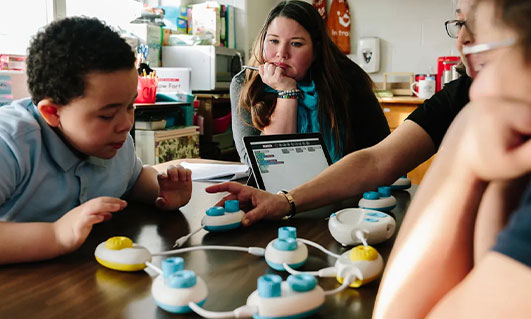Friendships play a significant role in our overall health and well-being. However, cultivating and sustaining meaningful friendships can sometimes be challenging. Recognizing the value of social connections in your life and knowing how to foster and maintain lasting friendships is crucial.
Having strong friendships positively affects various aspects of our lives. Friends provide emotional support, companionship, and a sense of belonging. They offer a listening ear during challenging times, celebrate our successes, and contribute to our overall happiness. Research has shown that people with robust social networks tend to experience better mental health, lower stress levels, and improved overall quality of life.
To develop and nurture lasting friendships, it’s essential to prioritize social connections. Here are some steps you can take:
Be open and approachable
Cultivate an open mindset and be receptive to meeting new people. Approach others with warmth, kindness, and genuine interest.
Seek common interests
Engage in activities or join groups where you can meet people who share your interests and passions. This creates a solid foundation for building connections and sparking conversations.
Be a good listener
Practice active listening by paying attention to what others say, maintaining eye contact, and showing genuine interest in their lives. Show empathy and offer support when needed.
Invest time and effort
Building friendships requires time and effort. Be willing to invest in the relationship by initiating plans, making time for get-togethers, and staying in touch regularly.
Maintain trust and confidentiality
Trust is the foundation of strong friendships. Respect others’ privacy and confidence, and be trustworthy yourself. Avoid gossiping or betraying someone’s trust.
Show appreciation and gratitude
Express appreciation for your friends’ presence in your life. Celebrate their accomplishments and let them know how much they mean to you. Small gestures of kindness and gratitude can go a long way.
Be supportive
Offer support and be there for your friends during both good and challenging times. Show empathy, provide encouragement, and lend a helping hand when needed.
Communicate openly
Maintain open lines of communication. Address conflicts or misunderstandings promptly and respectfully. Honest and clear communication strengthens friendships and prevents resentments from building up.
What are the benefits of friendships for blind ?
Friendships, regardless of whether they are blind or not, offer numerous benefits to individuals. Here are some general benefits of friendships:
Emotional support
Friends provide a valuable source of emotional support. They offer a listening ear, empathy, and understanding during difficult times. Having someone to confide in and share your feelings with can alleviate stress and promote emotional well-being.
Increased happiness
Friends can bring joy and laughter into your life. Spending time with friends and engaging in enjoyable activities together can boost your mood and overall happiness.
Reduced stress
Social support from friends can help reduce stress levels. Having someone to talk to and lean on during stressful situations can provide a sense of relief and perspective.
Sense of belonging
Friendships create a sense of belonging and inclusion. Having a social circle where you feel accepted and valued enhances your self-esteem and overall sense of identity.
Improved mental health
Strong friendships are linked to better mental health outcomes. Friends can offer emotional validation, provide a different perspective on problems, and offer coping strategies. This support network can contribute to reduced symptoms of anxiety, depression, and other mental health conditions.
Enhanced self-confidence
Supportive friends can help boost your self-confidence and self-worth. Encouragement and positive feedback from friends can help you develop a more positive self-image.
Increased social skills
Friendships provide opportunities to develop and refine social skills. Interacting with friends allows you to practice communication, empathy, and conflict resolution, which can improve your overall social competence.
Healthier lifestyle choices
Friends often influence our behaviors and choices. Having friends who engage in healthy habits, such as exercising, eating well, or pursuing personal growth, can motivate and encourage us to adopt similar positive behaviors.
Expanded perspective
Friends come from diverse backgrounds and experiences, offering different perspectives and insights. Engaging with friends who have different viewpoints broadens your understanding of the world and fosters personal growth.
Longevity and life satisfaction
Research suggests that having strong social connections, including friendships, is associated with increased longevity and overall life satisfaction. Friends provide companionship and a sense of purpose, contributing to a fulfilling and meaningful life.

It’s important to note that the benefits of friendships can vary depending on the individual and the nature of the friendship. Whether a friendship is blind or not does not inherently change the benefits; it is the qualities of the friendship and the support provided that contribute to these advantages.





